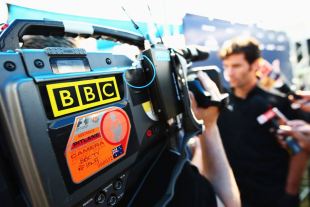- News analysis
A stumbling block for News Corp?

- Feature:
-
The race for F1's .7bn revenue
One of the UK's leading competition lawyers says that a takeover of Formula One by Rupert Murdoch's News Corporation would face "concerns" due to a conflict of interest.
Paul Stone, head of competition and regulation for leading law firm Charles Russell says that "News Corporation's involvement in the bid for Formula One could attract scrutiny from the competition regulators, given News Corporation's interest in Sky."
He adds that "one of the potential concerns that our sports and media group at Charles Russell has identified would be that News Corporation might be able to influence decisions over which broadcaster is awarded rights to show the races, in order to advantage Sky."
Stone's track record is ideally suited to analysing the implications of a possible takeover by News Corp. Before he joined Charles Russell he worked in-house at ITV, where he was head of legal affairs, regulatory and competition, and one the many high profile cases he worked on was the acquisition of BSkyB's 2006 acquisition of a 17.9% stake in ITV.
News Corp has not yet even made a bid for F1 and although it released a statement last week saying that it had formed a partnership with Italian investment fund Exor it added "there can be no certainty that this will lead to an approach to F1's current owners."
Clearly, if News Corp were to make a successful bid for F1 and then move the sport to its own channels (pay per view or otherwise) it would give it a position of dominance over its rivals. It would be in the same position if it were to offer the rights to broadcast F1 to its rivals.
If the UK's BBC broadcast a News Corp-owned F1 and the two network owners found themselves bidding to screen another sport, such as rugby, News Corp could threaten to dramatically increase the price of F1 when the BBC's contract runs out unless it pulls out of the running for the rugby.
It is precisely this kind of an advantage over its competitors (in this case knowing how much they are bidding for the rights to broadcast F1) which prevented News Corp's 39%-owned subsidiary BSkyB from buying the Manchester United football team in 1998. The UK's competition commission ruled that owning Manchester United would give BSkyB "influence over and information...that would not be available to its competitors."
Given that F1 is an entire sports series rather than just a single team, and given that an acquisition of it would attract exactly the same kind of hurdles as the planned takeover of Manchester United, it is hard to see how the deal would be cleared.
The European Commission (EC) would be forced to investigate a News Corp takeover of F1 since the combined entity would have a revenue above the threshold of €5bn globally and €250m in Europe. Stone says that perhaps the EC "might consider whether safeguards could be put in place to ensure that this type of decision is made independently of News Corporation's interests." However, this would put the control of the income from F1's lucrative broadcasts rights outside of News Corp's control and no buyer is likely to favour this option.
Accordingly, it is little surprise that BSkyB's takeover of Manchester United stalled despite any safeguard suggestions.

